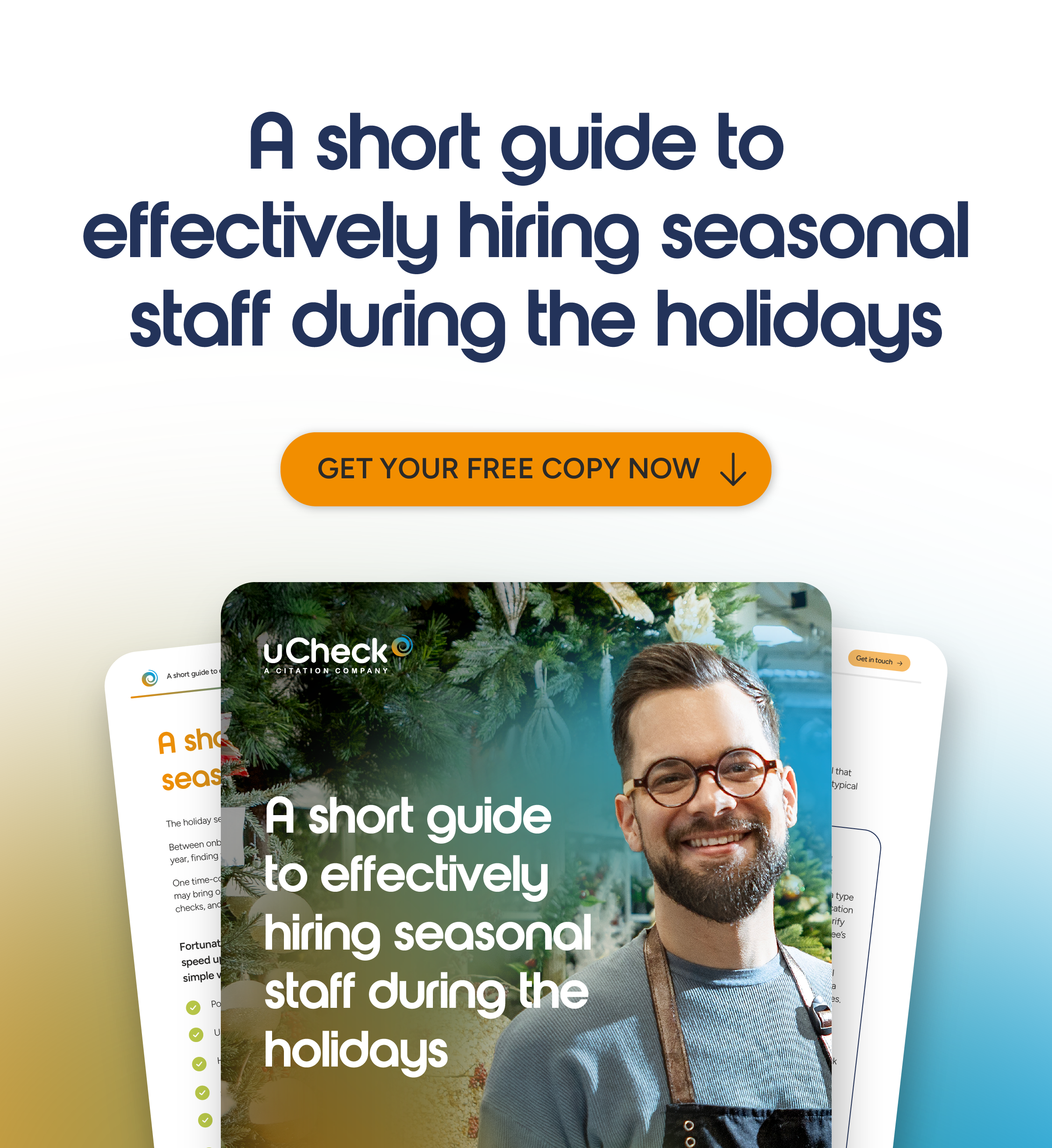Do you hire casual workers or rely on zero-hour contracts? There’s an important update coming your way.
The Secretary of State for the Home Department made an announcement on 30 March that right to work checks will soon cover gig economy workers and casual staff. This means big changes if you work in construction, hospitality, retail, or logistics. But don’t worry, we’ve got your back.
What’s changing with right to work checks?
Right to work checks have been a legal requirement for anyone hiring employees on traditional contracts. They’re there to make sure the people you bring into your business are legally allowed to work in the UK. Sound simple? It is – but now, the rules are expanding.
Soon, if you hire gig economy workers, zero-hours workers, or independent contractors you’ll have to keep on top of right to work checks for them. Just like you would for regular employees.
This isn’t just a suggestion. The Home Office has made it clear that these checks will become a legal requirement. The penalties for not complying? They’ll hit hard – with fines of up to £60,000 per breach or, in some cases, business closures.
Which sectors will be most impacted by right to work changes?
Not every business will feel these changes in the same way. If you hire flexible workers or casual staff, listen up. Industries most impacted will likely be:
- Hospitality – Think casual shifts and a seasonal workforce.
- Construction – With heavy reliance on contractors, getting this right is crucial.
- Logistics – Delivery drivers, temporary staff, freelancers… they’ll all fall under the new rules.
Basically, if your workforce is a made up of different types of workers, you’ll want to be ready.
What are the challenges for employers hiring casual staff?
It’s one thing to say, “Do more checks,” but it’s another to actually make it happen. Here’s where you might hit a few speed bumps:
- High turnover rates: The gig economy thrives on flexibility, meaning lots of new faces. Keeping up with checks for rolling workers can be a headache.
- Identity verification: It’s not just about ticking boxes. You’ll also need to make sure every worker is who they say they are, either in person or through video calls.
- Supply chains: Got contractors or agencies helping out? You’ll need to check that their checks are airtight, too.
Oh, and there are still some unanswered questions. Like, will these checks just apply to new hires, or will you need to go back and check your current roster? The Home Office will hopefully clear things up soon.
What can you do to stay ahead of the changes?
The good news? This doesn’t have to be a scramble. With a bit of planning, you can take the changes in your stride.
Here’s how to get started:
- Review your policies: Right to work checks aren’t just for HR teams. Make sure your whole organisation knows what’s changing and how it’ll be handled.
- Offer training: Got managers who hire, or teams using agencies? Make sure they understand the ins and outs of the new rules.
- Conduct an audit: Check where you are now. Got gaps in your current right to work processes? Now’s the time to sort them.
- Ask questions: If you work with agencies or contractors, find out if their systems are compliant. Build it into your agreements to protect yourself.
- Think big picture: If you’ve got a high turnover or lots of casual staff, it might be worth looking into digital tools to streamline checks.
Why does this matter?
Illegal working doesn’t just come with fines. It can hurt your reputation, slow down your operations, and leave your team feeling stressed.
It’s the perfect time to send a clear message to your team and clients – you do things properly, every time. So, get ahead of these changes to protect your business.
Do you need help with your right to work checks?
Changes can always feel overwhelming, but you don’t have to tackle them alone. Whether you’re updating policies, training your teams, or weighing up digital solutions, we’re here to help.
By acting now, you’re not just preparing for compliance. You’re proving that your business is built on trust, fairness, and the confidence that comes with doing things the right way.
Got questions about the new rules or how they’ll impact your business? Don’t hesitate to reach out. We’d love to help you get ready.







